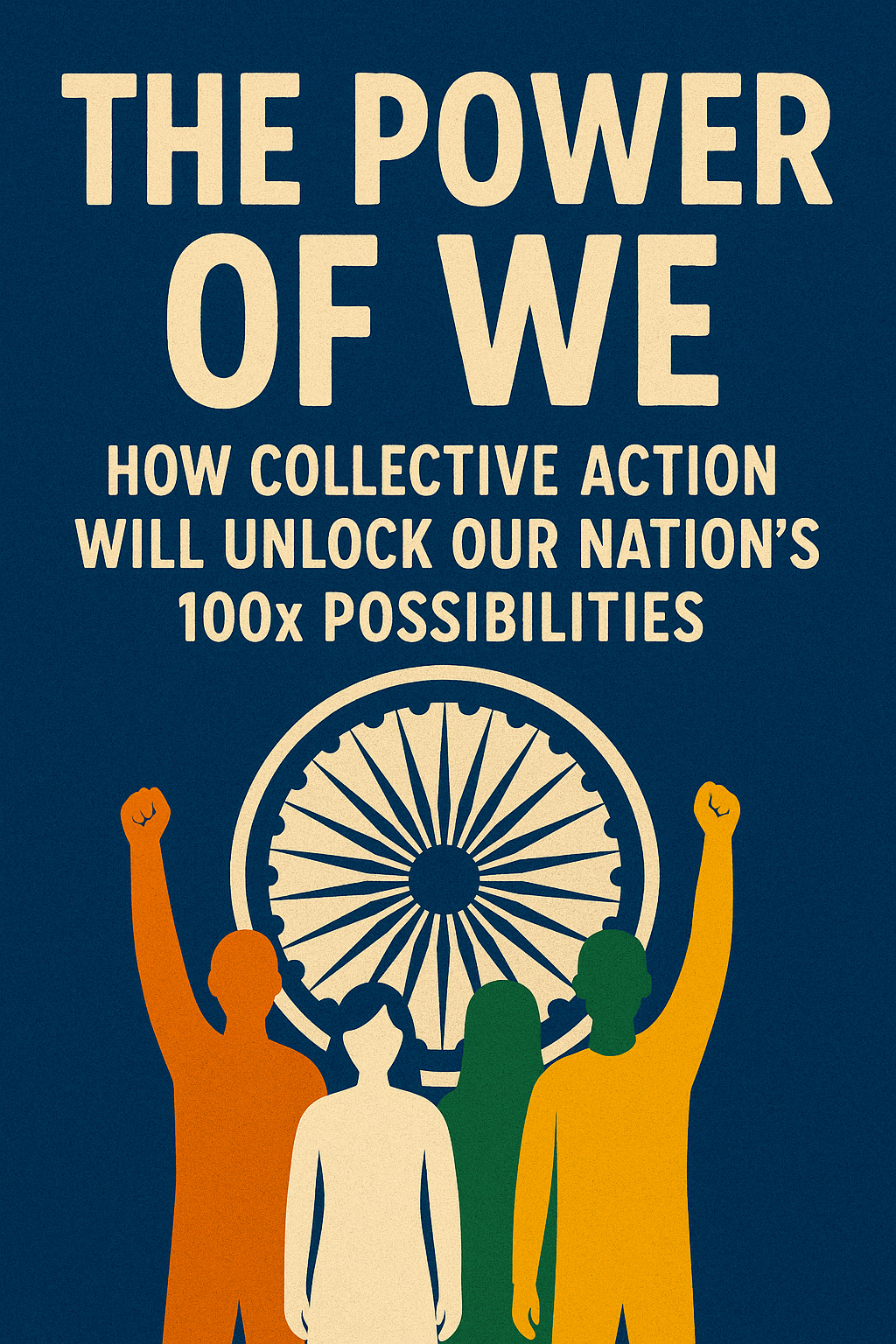To the esteemed political leaders, policymakers, and public servants who guide our nation’s destiny—
The ultimate measure of governance is not the power it wields, but the progress it enables. As we embark on our mission to build a ‘Viksit Bharat’ by 2047, we must redefine the very essence of our political and administrative machinery. The path to achieving the BHARAT 100x vision is not one of top-down mandates, but of a new era of collaborative governance. It is a synergy between the government, the private sector, and the citizenry, working in unison to accelerate national development at an unprecedented pace.
A ‘Viksit Bharat’ will be built on a foundation of trust, transparency, and a shared vision. This requires us to move beyond a model where the government is the sole driver of change, to one where it is a powerful facilitator of progress.
From Ideology to Action: A Unified National Agenda
For decades, the political discourse in India has often been driven by ideological differences. While a healthy debate is essential for a vibrant democracy, the challenges of the future demand a new level of unity and purpose. Collaborative governance is about creating a unified national agenda where progress is the only political ideology that matters.
We have already seen the power of this collaboration. The Digital Public Infrastructure (DPI), including platforms like UPI and Aadhaar, wasn’t just a government project; it was a collaborative effort involving policymakers, tech innovators, banks, and the public. Today, it stands as a global model of how technology can be leveraged for inclusive growth. Another example is the success of public-private partnerships in building world-class infrastructure, from highways to airports, which were once considered exclusively a government domain.
This is the model for the future: the government as the enabler, creating the policy framework and digital infrastructure, while the private sector and civil society are the engines of innovation that drive progress.
The Blueprint for Collaborative Governance
As leaders, your role is to cultivate an environment that nurtures this collaboration. Here is a blueprint for action:
- Policy Co-Creation: The most effective policies are those that are co-created with stakeholders. We must establish robust mechanisms for public consultation, engaging with industry leaders, educationists, and community representatives before a policy is finalized. This ensures that policies are not only well-intentioned but also practical and effective.
- Harnessing Technology for Transparency: E-governance, data-driven decision-making, and open public platforms are vital tools for building trust. By making government processes transparent and accessible, we can reduce red tape, fight corruption, and create an efficient system that attracts investment and empowers citizens.
- Strengthening Cooperative Federalism: The vision of a ‘Viksit Bharat’ can only be realized if states and the central government work as partners, not competitors. This is about fostering a spirit of cooperative federalism, where the best practices from one state can be shared and scaled nationally, and where states are empowered to drive their own development agendas within a national framework.
The journey to BHARAT 100x is a political one in its truest sense—the politics of progress, unity, and empowerment. It requires us to put our nation’s future above all else. Your leadership in this new era will be measured not by the laws you pass, but by the trust you build and the progress you enable.
Join us at BHARAT100x.com and become part of a community of leaders dedicated to a politics of purpose. Let’s work together to create a future where governance is not a barrier, but the most powerful catalyst for our nation’s prosperity.
Coming Soon
The New Trade Deal Explained: What It Means for Local Businesses










